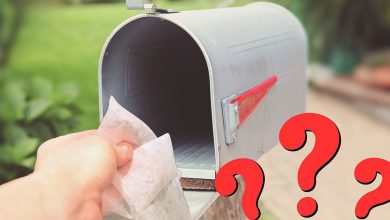
There is nothing quite like biting into a deliciously fresh and homegrown tomato. Here, we reveal a homemade tomato fertilizer recipe that you can try in your garden.
Tomatoes are a staple in almost all edible gardens and for good reason.
Tomatoes are exceptionally heavy feeders, meaning they require close attention to quality feeding if you desire a bumper crop. Both healthy plant and fruit growth should be a priority when feeding tomatoes.
The two main nutrients that tomatoes require are phosphorus – which helps make big and beautiful flowers and fruit and calcium which prevents blossom-end rot. This condition, marked by a sunken hole on the flower end marks calcium deficiency.

In addition, tomato plants also need some nitrogen… but not too much.
If you provide too much your plants will be big and bushy and green but you won’t have any flowers and therefore no fruit!
Prepare Your Tomato Beds

Before you even think about fertilizing your tomato plants it is essential to be sure that you fill your garden bed with ample nutrition.
You amend your beds prior to planting any tomatoes using composted chicken manure or cow manure.
You can also add in some worm castings which you can retrieve from your home vermicomposter. Here’s our guide to starting your own worm bin at home. It’s perhaps the best way of home composting so you should seriously consider starting one.
Worm castings from homemade vermicomposter

Vermicompost is loaded with nutrients as well as a wide variety of microscopic microorganisms that help tomatoes gobble up food easily while keeping soil-dwelling pests at bay.
Another exceptional and easily available additive is eggshells.
You wash and dry my shells and grind them into a powder that is easily blended with the soil. Eggshells give your soil a burst of calcium which tomatoes use to protect themselves against blossom end rot.
Check your beds for good drainage and ensure that there is no compacted soil that will get in the way of proper drainage.
You should be able to push your fingers into the soil without too much force. If you can’t do this, it is likely that your soil is compacted and needs to be broken up.
The Best Time To Fertilize
When thinking about fertilizing your tomato plants for robust growth the best strategy is to fertilize when planting and then wait a bit for your plants to get settled into the garden bed.
At Planting

It is important to give your tomato plants a push right from the start.
The very first thing you should toss in the planting hole is a fish head.
As raw fish decays quickly, it provides nitrogen, phosphorus, calcium and trace minerals to the newly planted tomato.
You can also use fish bones, fish guts, and shrimp shells.
Check at your local grocer or local restaurants, they might give you some fish heads for free!
The next thing you can add to the planting hole is a few crushed eggshells for calcium and two aspirins crushed. These provide an immunity boost.
Finally, I add ⅓ cup of organic bone meal and ¼ cup of my homemade tomato fertilizer (see below). Bone meal is a nutrient-rich powder made from boiled animal bones that are then pulverized. It’s a great soil additive to have on hand; read more about it here.
At Fruit Set

When you see the first little fruits starting to form on your plants you need to provide a second application of fertilizer.
This is a good time to use fish emulsion. In addition, you can use an organic foliar feed which I use on the plant and on the soil around the plant, or some of your own homemade tomato fertilizer.
Supplemental Feedings

Keeping a close eye on your tomato plants throughout the growing season is a good way to know when they need a little extra boost.
If you happen to notice that your fruit production is slowing down or your plants look a little “tired,” it might be time to offer up another feeding.
You can use fish emulsion or compost tea or composted manure at this time.
To avoid your plants becoming too stressed, provide supplemental feeding once a month throughout the growing season.
A note on chickens, rabbits, and hamsters
If you have chickens, their manure is exceptional for tomatoes – just be sure to compost it well before using.
Rabbits and hamsters also offer rich manure for tomatoes. This is especially true if they have a lot of alfalfa in their diets.






